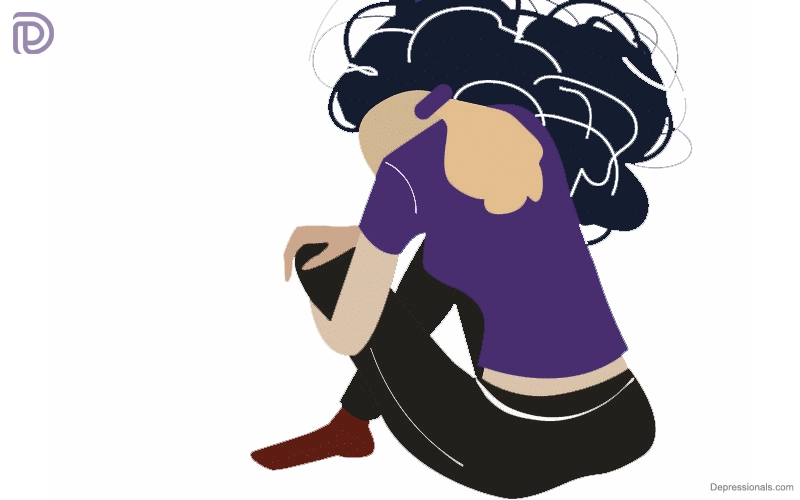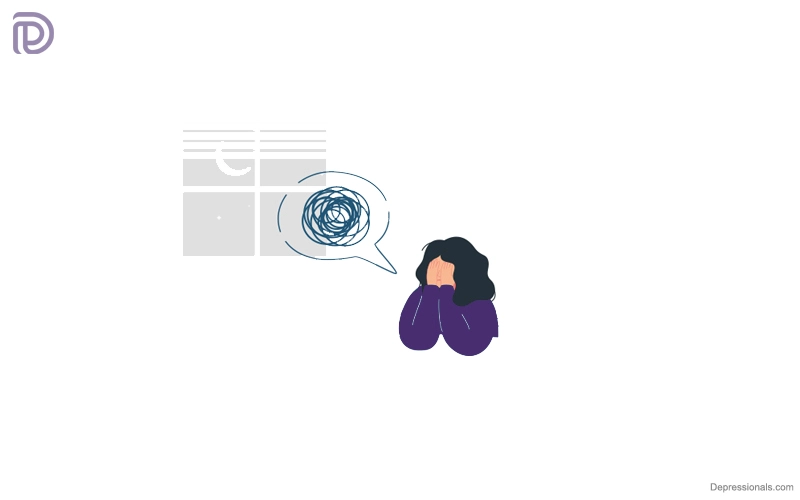What is depersonalization disorder?
Depersonalization disorder, also known as depersonalization-derealization disorder (DDD), is a mental disorder.
This new term represents the two primary problems that persons with DDD experience:
- Depersonalization has an impact on how you interact with yourself. It might make you feel as though you aren’t who you say you are.
- Derealization has an impact on how you interact with other people and objects. It might give you the impression that your environment or other people aren’t genuine.
These difficulties might make you feel distant or disconnected from yourself and the society around you when they occur together.
It’s not uncommon to have these feelings from time to time. However, if you have DDD, these sensations might last for a long time and interfere with your daily tasks.
Continue reading to find out more about DDD, including its symptoms and treatment options.
Read: Dissociative Identity Disorder
What is the cause of DDD?
Nobody knows for sure what causes DDD. However, it appears to be connected to stress and trauma for certain people, particularly when they are young.
For example, if you were up in an environment where there was a lot of violence or screaming, you may have developed a coping technique of mentally removing yourself from those circumstances. As an adult, you may simply rely on these detachment behaviors in stressful events.
In some people, taking certain medications might induce symptoms that are extremely similar to DDD. These medications include:
- Hallucinogens
- MDMA
- Ketamine
- Salvia
- Marijuana
In a small 2015 research, 68 persons in recovery from substance use disorders who had been abstinent for at least six months were compared to 59 adults who had never used drugs or alcohol. DDD symptoms were present in more than 40% of patients who were in recovery.
Read: Dissociative Fugue
Depersonalization disorder symptoms
Symptoms of DDD are divided into two groups: depersonalization symptoms and derealization symptoms. People with DDD may exhibit signs of one or both of these disorders.
Symptoms of depersonalization include:
- Feeling as though you’re gazing down on yourself from above as if you’re outside your body
- Feeling disconnected to yourself, as if you don’t really
- A feeling of being numb in your mind or body, as if your senses have been shut off
- Feeling that you have no control over what you say or do
- Having the impression that some portions of your body are the wrong size
- Having a hard time linking emotion to memories
Symptoms of derealization include:
- Having difficulty identifying your surroundings or finding them foggy and even dreamy
- You feel as if a glass wall is separating you from the rest of the world; you can see what’s beyond but can’t connect with it.
- Sensation as if your surroundings aren’t real, or that they’re too far away, too close, too huge or too small
- Having a skewed perception of time — The past may appear to be quite recent, while recent events appear to have occurred a long time ago.
How is DDD diagnosed?
Remember that it’s quite natural to feel “off” or disconnected from the rest of the world at times. But when can these feelings become an indication of a mental health problem?
If your symptoms start to interfere with your everyday life, they might be a symptom of DDD.
Your primary care physician (PCP) will inquire whether you have any of the following symptoms before diagnosing you with DDD:
- Have periods of depersonalization, derealization or both frequently
- Bothered by your symptoms
They’ll also probably question if you’re aware of reality while you’re having symptoms. People with DDD are typically aware that their feelings aren’t entirely accurate. You may have another issue if you aren’t aware of reality at those times.
They’ll also want to make sure that your symptoms are as follows:
- Cannot be explained by the use of prescription or recreational drugs or by a medical condition
- Aren’t caused by another mental illness, such as panic disorder, post-traumatic stress disorder, schizophrenia or another dissociative disorder
Keep in mind that diagnosing mental health issues might take a long time. Make sure to notify your PCP about any additional mental health issues you have, especially sadness or anxiety, to expedite the process.
A 2003 study of 117 DDD cases discovered that patients with DDD frequently had sadness, anxiety or both.
Read: Dissociative Amnesia
Depersonalization disorder treatment
The most successful treatment for DDD is generally therapy, preferably psychodynamic therapy or cognitive behavioral therapy (CBT).
With the assistance of a therapist, you may learn about DDD, discover and work through any previous trauma or risk factors, and explore coping methods to help you get through future episodes.
It might be difficult to find a therapist, but it doesn’t have to be. Begin by asking yourself the following questions:
- What are the concerns you’d want to address? These might be very particular or quite general.
- Are there any qualities you’d want to see in a therapist? For example, are you more at ease with somebody who shares your gender?
- What is the maximum amount of money you can spend per session? Do you want someone who can work with you on a payment plan or a sliding scale?
- How will you fit treatment into your schedule? Do you require a therapist who can meet with you on a certain weekday? Or perhaps someone who has late-night sessions?
- You may start narrowing down your search once you’ve scribbled down some notes about what you’re searching for. If you reside in the United States, you may look for therapists in your area here.
- Drugs may be beneficial for certain people, but no specific medication has been identified to treat DDD. Antidepressants may be beneficial, particularly if you experience depression or anxiety.
However, for some people, these might actually worsen DDD symptoms, so it’s critical to keep your PCP or therapist informed of any adjustments in your symptoms.
Read: Retrograde Amnesia
Where can I find support?
Being detached from reality may be unpleasant and stressful, especially if it happens frequently. You may begin to believe that your symptoms will never go.
It might be beneficial in these times to connect with people who are dealing with similar difficulties. This is especially beneficial in between therapy sessions.
Consider joining a web-based support group like:
- DPSelfHelp.com is an online support group where individuals talk about depersonalization, including what has and hasn’t worked for them.
- Facebook groups, including Depersonalization/Derealization Support Group and Depersonalization
Complications
There can be a great deal of anxiety and disabling effect associated with episodes of depersonalization or derealization. It is possible for them to cause:
- Inability to focus or remember things
- Interferes with routine work activities
- Relationship problems with friends and family
- Depression or anxiety
- Feelings of hopelessness
How to help someone with depersonalization disorder?
If you or someone you know is suffering from DDD, there are many things you may do to help:
- Learn everything you can about the disease: You’re already doing this if you’ve made it this far through the article. It’s not necessary to become an expert on the subject, but having some basic knowledge might be beneficial. This is especially true with DDD because the symptoms are sometimes difficult for people to describe.
- Validate what they’ve been through: You can do it if you have no idea what they’re going through. A simple “I’m sorry you’re suffering from this,” or “That must be uncomfortable,” may go a long way.
- Offer to join them to a treatment appointment: You can discover more about their symptoms and what causes them throughout the session. If they’re uncertain about treatment, invite them to the first session.
- Recognize that reaching out for assistance may be difficult for them: It’s not a bad idea to let them know you’re accessible for help if they need it. Don’t assume that they don’t need or desire assistance because they are silent.
- Respect their own space: Don’t pursue the issue or take it personally if they say they don’t want to discuss their symptoms or any prior trauma.
Outlook
There is a good chance that many patients will be able to recover fully from depersonalization disorder. It is often the case that the symptoms associated with these disorders disappear on their own or after a person goes through treatment designed to help them cope with the stress or trauma that caused them. However, it is possible to experience additional episodes of depersonalization without treatment.





Hi, I read your blogs regularly. Your humoristic style is
witty, keep up the excellent work!
Top site ,.. amazaing post ! Just keep the work on !
I love your blog.. very nice colors theme.
Did you create thus website yourself or did you hire someone to do it for you?
Plz, answer back as I’m looking to create my own blog and would like to know
where u got this from. thanks a lot
Way cool, some valid points! I appreciate you making this article available, the rest of the site is also high quality. Have a fun.
The article is good. Thank you so much.
These kind of post are always inspiring and I prefer to check out quality content so I happy to finally find many excellent point here in the post, writing is simply great, thank you for the post
Hi there! This post couldn’t be written any better! Reading through this post reminds me of my previous room mate! He always kept talking about this. I will forward this article to him. Pretty sure he will have a good read. Thank you for sharing!
Your website is a pleasure to read due to the manner in which you write.
This is an incredible task. I really appreciate your work! So exact and also professional. Thank you so much for your effort. There was a small error, yet total I was satisfied.
Awesome post and right to the point. I am not sure if this is actually the best place to ask but do you folks have any thoughts on where to hire some professional writers? Thanks in advance 🙂
This is very informative.